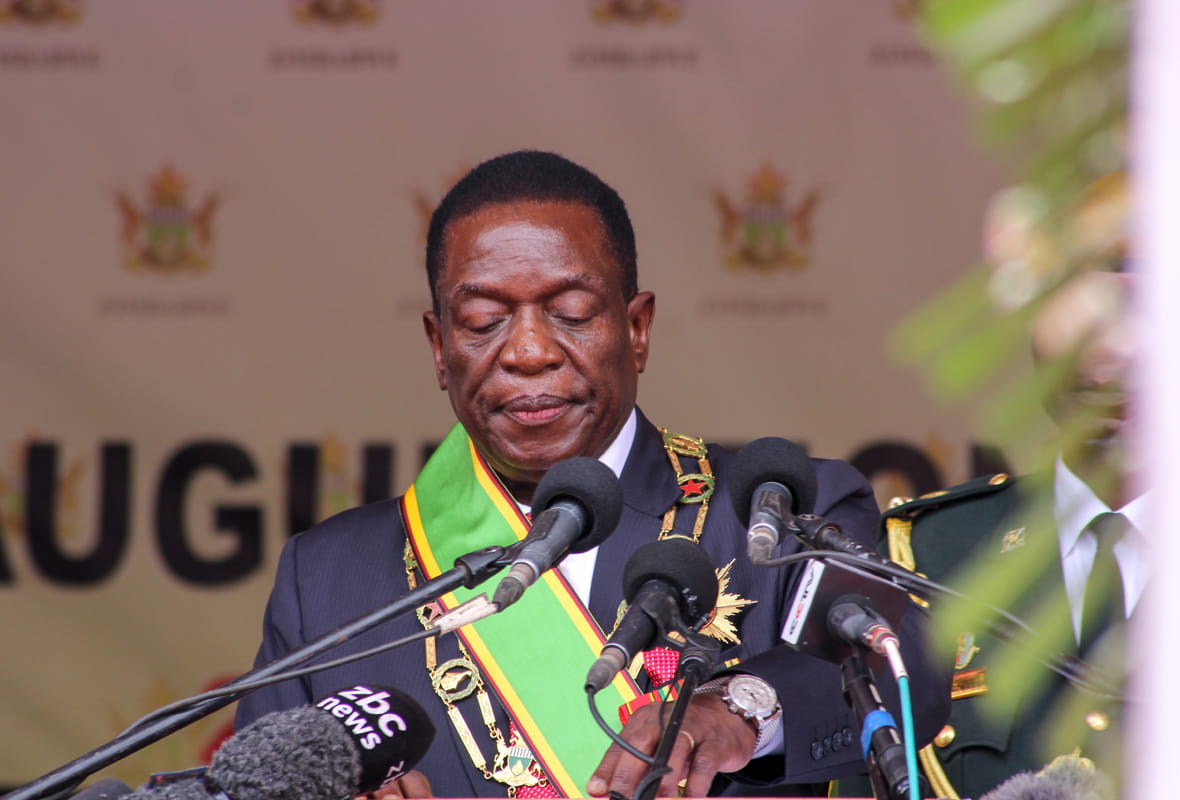by Makhosini Hlongwane
THE oppositional latitude of power which defines all political existentialism is the major reason why rigid binary nationalism has been allowed to threaten the sustainable premise of Zimbabwe’s engagement and re-engagement commitments.
Thanks to the New Dispensation and the Second-Republic in Zimbabwe under the leadership of His Excellency President Mnangagwa, we are gradually being oriented towards national convergence.
The disfigurements of our nationhood remain a product of the colonial infiltration of our politics. From the crisis of nationalist assertiveness which resulted in the adoption of Economic Structural Adjustment Programmes (ESAPs) and the delay of our land reform policy punctuated by the proliferation of neoliberal politics, Zimbabwe has suffered massive political polarisation. The normalcy of schisms has justified the preservation of all negativities which have kept us disengaged from one another. To this end, the establishment of the Political Actors Dialogue (Polad) offers a refreshing opportunity for us to unlearn polarisation.
In an act of consummate political craftsmanship, and a marked departure from non-consensual, non-embracive, toxic and steeply vertical brand of politics, President Emmerson Dambudzo Mnangagwa set up the Political Actors Dialogue (Polad) just after the July 2018 elections, to offer all political players who participated in the elections a chance to participate in the national governance process.
Polad as it is commonly known is a vital institutional intervention to assist with consensus, trust-building, cross-pollination of varied political ideas, and dowsing the flames of any would-be insipient political conflict, in a political environment long characterized by the exclusion of diverse political views, sometimes leading to violent conflict as was the case in the infancy of our independence.
The extinguishing of the flames of the Gukurahundi conflict at the close of 1986 leading to the historic Unity Accord in 1987, is a textbook case of how interparty as well as intraparty dialogues and caucuses, have a huge capacity not only to mediate conflict but to provide local solutions to local challenges. Indeed President Mnangagwa’s refrain, ‘no one should be left behind’ would be hollow if he was to not carry with him his opponents during the July 2018 election. Polad amply demonstrates the commitment by the second republic to engage local political actors for local challenges while concurrently engaging the international community to open doors for Zimbabwe to freely participate as a free member of the community of nations.
Borrowing from a rich history in independent Zimbabwe of converging on domestic solution invention for domestic problems and in the wisdom of the post-Operation Restore Legacy Zanu PF-led government, Polad has grown to be a progressive platform manipulating political dissent to harness common national interests. Polad unites all political divides
Our perennial and yet superficial oppositional gridlocked political essentialism has dissuaded our people from discovering the merits of unity espoused by the Polad engagement and re-engagement mechanism. The Polad framework is founded on the obvious reality of our inherent partisan differences. As such, Polad gestures political players to a hospitable site for venting protagonist contradictions which when put together direct the nation towards the fight against corruption, poor service delivery (even as observed more under opposition local authorities), violence and other political vices.
Polad’s national consensus direction is best marked by the fraternal ties set by the Second-Republic to have all political principals creating a non-partisan national development agenda for Zimbabwe. Given the height of our polarisation, this milestone has received reactionary assault simply because one opposition party is not part of Polad. However, this criticism is fiercely astray in terms of its logical locus. In any case, political parties that participated in the July 2018 elections were invited to be levers of statecraft reconfiguration through the Polad platform. If the criticism related to the deliberate exclusion of any political party to the Polad space, it would make some sense.
But deliberate apathy designed to vex a nation-building process should not invite criticism to the institutional and ideological integrity of Polad. In all fairness, such criticism should be exclusively directed to the truant party. The fact that no one political party is forced into the Polad process is itself due to the fact that it’s a democratic process where no one is coerced.
It is also poignant to note that Polad is not and must never be misconstrued to be a replacement for parliament. Instead, Polad must be widely acknowledged as a conduit for re-membering our dismembered partisan nationhood. As such, the developmental agenda produced by Polad may or may not be subjected to interjections by the parliament. To that end, Polad is a site of national political convergence where diversity of political thought is nurtured and tolerated and where developmental thought is sourced and mainstreamed into the architecture of national governance.
In conclusion, like in any other jurisdiction, political dissent cannot be avoided, but nations and their citizens are closely bound by integral values of nationhood. These include and are not limited to equality, justice, fairness, democracy, good governance, constitutionalism and economic prosperity among other values. Therefore, Polad was established with the central objective of bringing political parties together to map out points of convergence linked to the vantage points of national development.
Polad comes in as a significant intervention against the toxicity of divisive politicking –and the long-expired uncompromising political hate which has tormented our national unity over the years. Likewise, Polad must not be confused for a platform of mutual admiration by players. Instead, Polad must be viewed as a unifying space of developmental state conversations predicated on democracy and loyalty to cross-cutting values of national interest. In that case, Polad must go on.
Makhosini Hlongwane is a former cabinet minister and Zanu PF member of parliament for Mberengwa East.




